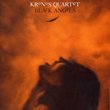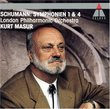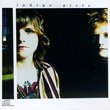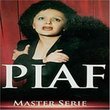| All Artists: Mahler, VSOP, Hermann Scherchen, Royal Philharmonic Orchestra Title: Mahler: Symphony No. 1, No. 10: Adagio Members Wishing: 0 Total Copies: 0 Label: Deutsche Grammophon Original Release Date: 1/1/2001 Re-Release Date: 9/18/2001 Album Type: Original recording remastered Genre: Classical Styles: Historical Periods, Modern, 20th, & 21st Century, Symphonies Number of Discs: 1 SwapaCD Credits: 1 UPC: 028947124627 |
Search - Mahler, VSOP, Hermann Scherchen :: Mahler: Symphony No. 1, No. 10: Adagio
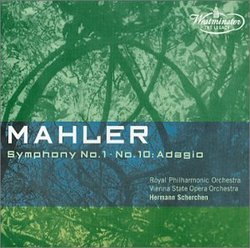 | Mahler, VSOP, Hermann Scherchen Mahler: Symphony No. 1, No. 10: Adagio Genre: Classical
|
Larger Image |
CD DetailsSimilar CDs
Similarly Requested CDs
|
CD ReviewsAn off beat approach! Hiram Gomez Pardo | Valencia, Venezuela | 09/10/2005 (4 out of 5 stars) "Herman Scherchen was a true legend in the musical direction. His interpretations were so distant to be absolutely idiomatic: and that' s why he can be underrated or underestimated. I must confess that with the only exception of Beethoven's Octave, I have been quiet reluctant about Bonn' s genius. Nevertheless his Mahler to my mind is always fascinating. Evidently Mahler was a very beloved composer for him, considering he was a young viola player in Berlin,1911 when he took part in the local premiere of Mahler' s Seventh. The First Movement is fiercely contemplative, The tempos sin of being quite low. But in the Third Movement, the best achieved, he conducts with a grotesque humor and sinister bitterness. That' s a punch because the sense of nostalgia is even more accented. In the second theme Scherchen enters literally in a glowing rapture, a kind of fevered dreamingly state and so retake the initial motive . Finally, we have this brilliant and incandescent entry and participate of this anguishing existential frenzy. This half-witted introduction will lead us to a sublime farewell song of inspired lethargy and paused reflection involved by an almost Wagnerian lyric mediation. The slowly from the depths of the dark cavern will emerge that triumphal and apotheosis motive to conclude the work. May be you disagree with the tempos; and the excessive use of rubatos, but the whole approach is extremely convincing. The adagio is simply sublime and is one of the best versions you can find in the actual market. " Better sound than I expected! Howard G Brown | Port St. Lucie, FL USA | 05/15/2004 (5 out of 5 stars) "I remember these recordings from lps in my high school years. Aural memory is not the greatest, but I'd swear they sound far better than what I remember of the Westminster pressings -- and they were very good in their day.I really have no problem with the Adagio from No.10. I've played it on two different systems at home, and it sounds fine to me either way. I think the Vienna State Opera Orchestra is the Vienna Philharmonic under another name, for contractural reasons. I know the Philharmonic is the Opera's orchestra during the season. The way the main theme of the adagio rises out of the tentative opening measures certainly suggests an orchestra that knows how this music should sound. They may not like it, but they know how to play it.Another conductor to be on the alert for is F. Charles Adler, who made a few, very fine Mahler recordings in the early to mid 50s on the SPA label, including an excellent 3rd Symphony." An Ideal Choice. Chip Kaufmann | Asheville, N.C. United States | 11/09/2001 (4 out of 5 stars) "This recording briefly appeared on CD in 1989 but has been out of circulation for many years. Now it's back in it's best sonic incarnation ever and it provides a great place to start for those of you who don't know Mahler's music and food for thought for those of you who do. Hermann Scherchen began his career as a violist in a Berlin orchestra in 1907. After taking part in a performance of the Mahler Seventh led by the composer, Scherchen decided that he too wanted to be a conductor. Thus began a long distinguished career not only as a champion of contemporary music but also as a renowned conductor of Mahler's music. Scherchen was famous for his highly original approach to the classics of the repertoire (check out his Beethoven Symphonies 3 and 6 also on Westminster).
This recording of the Mahler First unfolds with a crystal clarity that allows you to hear all the inner details. It's as if you're listening to chamber music of a very high order. This makes it an ideal choice for beginners while providing the experienced Mahler listener with some details they may have missed. The performance of the Royal Philharmonic brings these details vividly to life. Be advised that this 1954 recording is in MONO which actually enhances the chamber music quality of the sound. While the restored sound on the First is ideal, the same cannot be said of the Adagio movement of the Tenth which dates from 1952. It's also a different orchestra, the Vienna State Opera Orchestra, which was still rebuilding after the war. So if you must have state of the art sound then look somewhere else but if you want a fascinating, rewarding account of the work then go no further. You also get the original cover art and detailed liner notes too." |

 Track Listings (5) - Disc #1
Track Listings (5) - Disc #1




